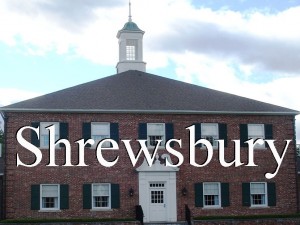By K.B. Sherman, Community Reporter
 Shrewsbury – The Board of Selectmen discussed at its Nov. 13 meeting the issue of how to comply with the state mandates regarding affordable housing.
Shrewsbury – The Board of Selectmen discussed at its Nov. 13 meeting the issue of how to comply with the state mandates regarding affordable housing.
The Massachusetts Comprehensive Permit Act: Chapter 40B (40B) allows developers of certain types of affordable housing to override local zoning bylaws and other town requirements. It was enacted in 1969 by the State Legislature to address the shortage of affordable housing statewide.
The program has not been without its critics because if a city or town does not have the mandated 10 percent affordable housing, a developer can appeal to the State's Housing Appeals Committee if a proposal is denied by the municipality. The committee may then possibly rule in the developer's favor, allowing the project to go forward.
Shrewsbury does not currently meet the 10 percent mandate. At the Nov. 13 meeting, members of the Planning Board met with the selectmen to discuss a proposed plan that would help the town achieve that benchmark.
Selectmen Chair Maurice DePalo questioned one aspect of the new plan that indicated that as the town moved forward with affordable housing, the goal was to build 70 such units in the first year and 139 in the second.
Planning Board Chair Melvin Gordon noted that those figures were correct, and added that if the yearly goals in the plan were not met, the town would lose its state certification and 40B would be imposed. ?Also noted was that while a large 40B rental development would take pressure off reaching the 40B mandate, such a development would unlikely be welcomed by the town. Accessory apartments and in-law apartments were also discussed as a way of creating more “affordable” units, although both come with different restrictions and require different permitting.
It was reiterated that the proposed town plan would allow Shrewsbury to continue to try to achieve the 10 percent affordable gate without the state coming in and mandating more low- and middle-income housing by activating 40B.
Gordon read a proposed letter to the Massachusetts Department of Housing and Commercial Development, urging them to accept the town's housing plan, as approved by the selectmen. The selectmen then voted unanimously to accept the plan and to support the Planning Board's letter to the state.

















